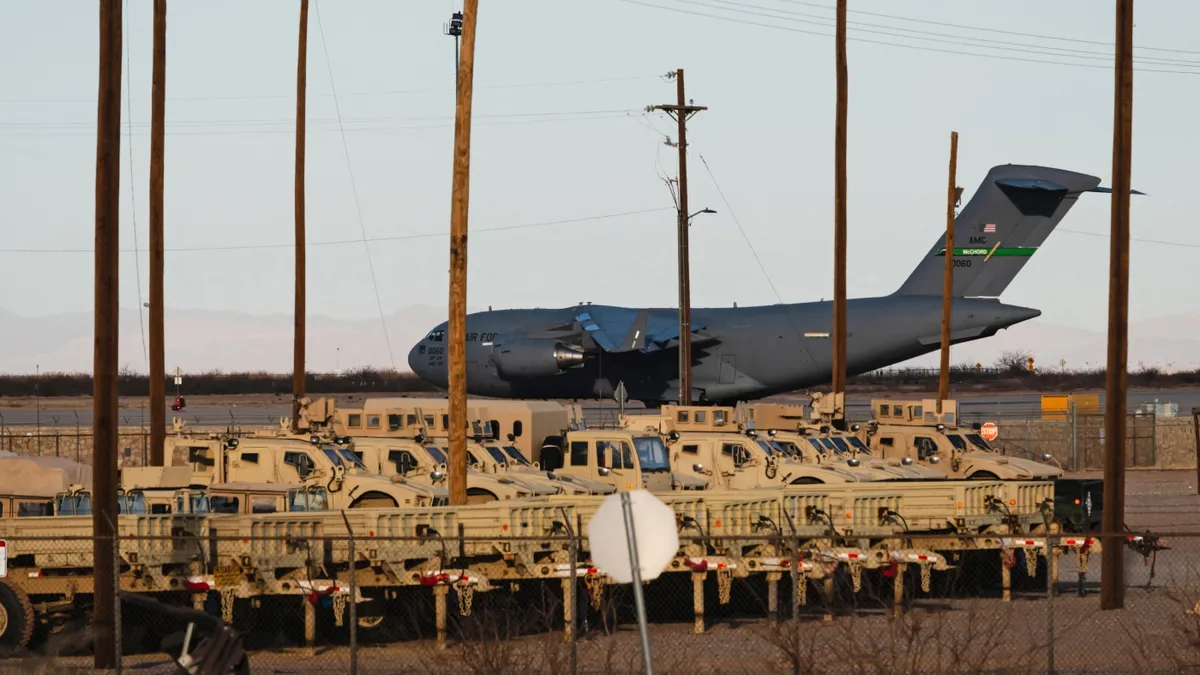
The Supreme Court has issued a stay on a recent ruling by a lower court that mandated individuals facing deportation to countries other than their own be granted the opportunity to contest their deportation orders. This ruling arose from a flight transporting several men from various nations, including Myanmar, Laos, Vietnam, Cuba, and Mexico, which was initially destined for South Sudan but diverted to Djibouti to allow the men time to dispute their final destination.
The U.S. government has labeled these men as violent offenders, citing convictions for serious crimes such as murder, sexual assault, kidnapping, and robbery. Officials argue that these individuals do not merit the right to remain in the country. However, Judge Brian Murphy of the U.S. District Court for the District of Massachusetts ruled last month that deportees must receive a so-called credible fear interview in their native language, allowing them to contest their deportation to a country they are not originally from. He also specified that they should be given at least 15 days to challenge their deportation orders.
The unsigned order from the Supreme Court effectively suspends Judge Murphy's ruling while the legal proceedings continue in the lower courts. The court's three liberal justices—Sonia Sotomayor, Elena Kagan, and Ketanji Brown Jackson—expressed dissent, emphasizing the need for caution in matters significantly impacting individuals' lives. They argued that the government's expedited deportation approach undermines the principles of due process.
As the Supreme Court deliberated, several migrants and U.S. detention officials found themselves in dire circumstances, living in a converted shipping container at a U.S. military base in Djibouti. They faced extreme temperatures, heightened exposure to malaria, and proximity to burn pits, which released harmful smoke from burning waste. The liberal justices raised concerns that the rapid deportations to countries like South Sudan could expose these individuals to torture or other perilous conditions.
In May, U.S. Solicitor General John Sauer requested the Supreme Court to enact an immediate stay on Judge Murphy's order, arguing that it was causing significant disruption to the third-country removal process. He noted that the U.S. is grappling with a crisis of illegal immigration, asserting that the individuals most deserving of removal are often the most challenging to deport. The government had successfully negotiated with third countries to accept these individuals after their home nations refused, but Judge Murphy's ruling imposed burdensome procedures that hindered this process.
Immigration attorneys contended that, regardless of their criminal background, all individuals deserve meaningful notice and an opportunity to present their case before being sent to potentially dangerous environments. Organizations such as the Northwest Immigrant Rights Project, Human Rights First, and the National Immigration Litigation Alliance highlighted the urgency of the situation, stating that the men scheduled for deportation to South Sudan received notification only the night before their flight.
The strategy of relying on third countries to accept U.S. deportees is not a new phenomenon; however, the Trump administration placed a heightened emphasis on securing agreements with more nations, including China, Venezuela, and Cuba, to expedite deportations. Secretary of State Marco Rubio emphasized the importance of selecting countries that are farther away to prevent return attempts. Current DHS policies require deportees to be informed of their destination country and allowed a prompt screening for any fears of torture.
The legal arguments surrounding how long migrants should have to contest their deportation orders remain contentious. While the DHS asserts that this process can be completed in mere minutes, the reality for many deportees is starkly different. With some individuals receiving less than 24 hours' notice before their deportation flight, immigration lawyers argue that such minimal time frames severely limit the chance for effective legal representation and argument, especially for those who do not speak English.
The Supreme Court's intervention in this case serves as a critical moment in the ongoing debate about immigration laws and the rights of individuals facing deportation. As the legal proceedings unfold, the implications for due process and humane treatment in the immigration system are expected to remain at the forefront of public discourse.